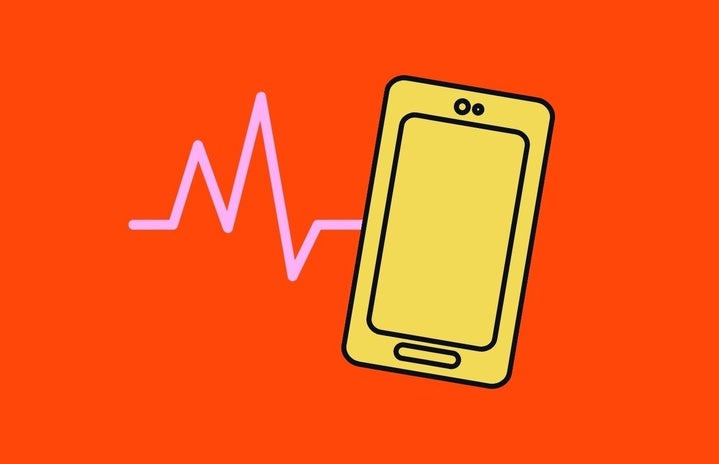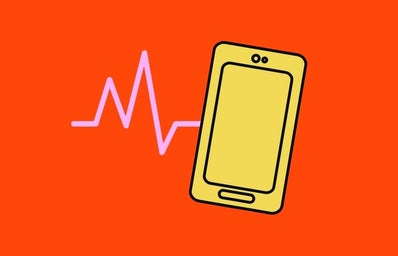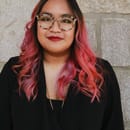Polycystic Ovary Syndrome, or PCOS, is a hormone imbalance that affects people who menstruate––and is more common than many might think. I want to preface this article by stating that I am not a healthcare professional by any means merely wish to share my experience, raise awareness, and provide some signs to look out for anyone suspecting they might have it.
Contrary to what the name says, many people with PCOS do not have ovarian cysts, such as myself, but they are possible. Common signs and symptoms include incredibly irregular periods (my doctor said any cycle longer than 35 days), higher than normal levels of male hormones such as testosterone, acne even after puberty, hirsutism (excessive hair growth in the legs, arms, chest, and face), thinning hair, painful periods, infertility, depression, insulin resistance, and difficulty losing weight (and subsequently, ease of gaining weight). Again, I am not implying that if you have any of these symptoms you automatically have PCOS, but it is something to bring up if your doctor hasn’t already.
I was around a junior in high school when my new doctor took one look at me and asked if I’d ever been diagnosed with Polycystic Ovary Syndrome. I’d heard of it from some TLC show about a woman who was obese and had tried losing weight, but couldn’t for some reason. He printed off a list of symptoms and told me to check off every one that I experienced. Of course, this was just his hunch, but we confirmed it with a blood test.
Suddenly, everything made sense. In high school, I was exercising at least five days a week as a marching band kid, and had some disordered eating habits, but actually stayed the same weight or even gained some. My periods––when they did come––were abnormally painful, seemed to come and last as long as they pleased, and my mood swings were horrible. I was prone to depression and anxiety. My hair was thinning and falling out, and I had hair in more places than normal (my mother said it was from my father’s side of the family).
Coming to terms with my health syndrome was a struggle. Being the Type A person that I am, I immediately began researching. While my lifestyle isn’t perfect, I found new ways to make adjustments that fit my health needs (however, what fits for me won’t necessarily fit everyone’s, so use it as a guide rather than hard and fast rules). I have diabetes (type 2 I think, but I could be wrong) and while I have a family history of the disease, I believe that the insulin resistance caused by my PCOS was a factor in developing it sooner. I manage my diabetes with metformin twice daily, and I was also put on birth control.
Birth control is so extremely important that whenever I go to the hospital or see a new doctor and tell them I have PCOS, they immediately ask if I’m on it. I think my very conservative and traditional Asian mother had trouble coming to terms with the fact that her teenage daughter was needing birth control, because we fought tooth and nail for a while about it. She assumed that meant I was going to be having all sorts of crazy sex and end up pregnant before I graduated high school. I was a nerd who wasn’t allowed to go to parties and learn social skills––I think I was pretty safe from doing that anyway, but she didn’t budge for a long time.
It was only after speaking with a coworker at the hospital (my mother is a nurse––ironic, right?) that she allowed me to have some agency in setting up an appointment with an OBGYN.Thanks to my birth control prescription, I have regular periods again and my symptoms are manageable.
The importance of regular periods and birth control cannot be understated. Without shedding the uterine lining regularly, a person can be at increased risk for cancer. As far as specific diet aspects of my life, I try to limit my red meat consumption and stick to white meats such as salmon and chicken as recommended by my doctor––though other recommendations can vary. Additionally, I incorporate lots of vegetables and limit carbs, and have switched to dairy alternatives such as almond or oat milk (regular milk can have a lot of hormones in it, but I understand that eating healthy is a privilege that even I cannot fully take part in at times).
Due to being a long-hauler (a person who experiences the effects of COVID-19 months after exposure), as well as an individual suffering from body dysmorphia issues, going to the gym and exercising harder is a challenge for me, but it is still something I try to do at least twice a week. Nevertheless, my weight, despite eating healthier and being much more active, has stayed pretty stagnant. However, I don’t wish to discourage anyone from trying anyway. My choices have provided a better and healthier lifestyle for myself in addition to keeping the worst of my symptoms at bay.
I urge anyone who suspects that they may also have PCOS to seek out professional opinions and help.



